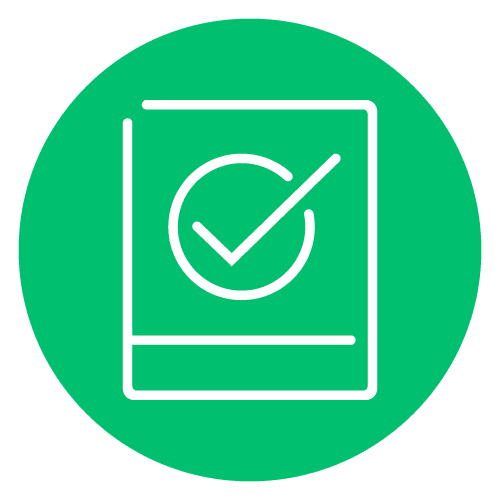
Updated April 16, 2025
At Online Optimism, we’re extremely proud of our interns – who we call our Specialists. Over the past decade, we’ve worked with over 100 specialists, and we’re happily able to count many among our full-time employees today, and we’re happily able to count many among our full-time employees today.
The key to our Specialist program’s success, aside from the work that my staff puts into training and managing each Specialist, isn’t only because of what we do at Online Optimism – it’s because we hire the most capable, ambitious, hard-working, passionate, and exceptional people we can find. So are you ready for your first digital marketing internship?
Apply to ONLINE OPTIMISM’S PAID SPECIALIST PROGRAM. We accept applicants in Louisiana, New York, Georgia, Illinois, Florida, Virginia, Colorado, Arizona, New York, or Washington, DC.
There’s no one set path toward becoming a Specialist, but when I meet college students at networking events, they often ask what classes they can take to prepare themselves, or if they need to do other unpaid internships first. While we do require experience, the wonderful thing about digital marketing is that the Internet can provide you with all of the training, experience, and knowledge you need – after all, no one should have to work unpaid to get into an industry.
After the COVID-19 pandemic hit, Online Optimism became a fully hybrid workplace. Today, both our Optimists and our Specialists are able to choose whether they would like to work remotely, in-person at a shared coworking space, or both.
If you’re looking to get your first digital marketing internship,
here are five things you can do, for free,
to make your application stand out!
1. Build Yourself a Website!
If you’ve never considered getting yourself a website, it’s time to reconsider. On our Specialist applications, one of the first things we ask for is either your LinkedIn or website URL, and over the past couple years there’s been a significant increase in those applicants (particularly for Design and SEO) that are coming to us with websites they’ve built themselves. The truth is – with the tools available, it’s not too difficult for a newbie to build their first website, and it’s a great introduction to many aspects that come with digital marketing.
If you’re looking for a free solution, we typically recommend Wix or Webflow, which has a handy-dandy free option that will not only allow you to build your site, but host it permanently at no cost – the perfect option for the student on a budget!
While these drag and drop builders might not win any UX awards, it’ll let you showcase your personality and capabilities. In addition, going above and beyond with implementing Google Analytics and Google Search Console on your own site can give you data about who is (or isn’t) actually checking out your website when you apply for a position.
If you’re looking to go above and beyond on visuals, you can consider updating your resume as well with a tool like VisualCV.
2. Make Your Passion Into a Portfolio.
As cool as it would be for my entire life to revolve around SEO, my lifelong passions probably line up closer to playing games with friends – there’s a reason I started the Tulane Board Games club, after all.
 Similarly, while you may enjoy reviewing analytics, the most important thing in your life probably isn’t deep-diving Google’s Tag Manager. What’s great about digital marketing is that you can showcase your abilities in marketing, expand them, and continue learning by applying your passions.
Similarly, while you may enjoy reviewing analytics, the most important thing in your life probably isn’t deep-diving Google’s Tag Manager. What’s great about digital marketing is that you can showcase your abilities in marketing, expand them, and continue learning by applying your passions.
One of my favorite interviews we ever did was with an applicant that absolutely loved horses. And so, in the year or two before applying for a position with us, she had built a blog that talked about horses. It started as a simple blog, but over the course of the year, she’d added analytics, implemented social media and SEO strategies, and looked to expand. She’d given herself a crash course in digital marketing simply by talking, writing, and creating content. And since it was all related to her passion, it didn’t feel like work, necessarily. Her entire interview revolved around her walking us through the problem-solving that she had done to try to expand her website.
That is the kind of experience you can give yourself, simply by applying your digital marketing interest to your passion. WordPress is a great resource for these types of sites – and again, it’s free. So pick your passion, and create a blog. Then, use some of the resources below to expand your digital empire!
- Moz’s Beginner’s Guide to Search Engine Optimization
- Yoast’s Guide to Blog Writing for SEO
- Pro Blogger’s Tips on Using Social Media to Grow a Blog
- Search Engine Watch’s Guide to Google Analytics Reports
3. Resume-Builders that Aren’t Undergrad Degrees in Marketing
As our Specialist page says, we look for a pretty varied set of degrees for our Specialist positions. An undergrad degree in Marketing, Communications, or Design, is nice, but not necessary – most of our staff don’t have one. Here are a few other majors we look for:
- English
- Mathematics, Statistics, or Economics
- Political Science
You may be surprised that we don’t specifically seek out people with marketing or business degrees. Though marketing majors learn a lot about the industry, they often haven’t been required to take many writing classes like English and Political Science majors have. In our Content/SEO department, we look for people who have strong writing skills and typically those people are usually English or Journalism majors. That’s not to say that Marketing, Business or any other majors aren’t welcome because you also have a lot to bring to the table.
Still, even a degree isn’t 100% necessary when you’re out there seeking your first digital marketing internship. There are many certifications that you can earn online (yes, for free, if you hadn’t noticed that trend already) that we look for on resumes to give us a little more confidence that you’re worth interviewing.
SEO, and digital marketing in general, changes very quickly and it’s hard for universities to keep up with those changes and implement new curriculums accordingly. A lot of what you need to know when it comes to digital marketing comes from hands-on experience, which is why doing things like building a website or portfolio are so helpful. These certifications can help you give you a run down of the basics for each of our Specializations:
Business Development
- HubSpot’s Inbound Sales Certification, or HubSpot Sales Software Certification, or Digital Marketing Certification
- MIT’s Marketing Strategy
- Google Ads Certifications
- Microsoft Advertising Certifications
Content
- HubSpot’s Content Marketing Certification, or Digital Marketing Certification
- Google Analytics Certification 4
- SEMrush SEO Fundamentals Exam
Culture/OpERATIONS
- EDX’s Remote Work Revolution for Everyone
- HubSpot’s Digital Marketing Certification
- MIT’s People and Organizations Course
Design & Video
- Adobe Design Certifications
- It’s worth noting that for our creative departments, your portfolio matters far more than any certificates. We want to see what you can produce!
Digital Marketing
- HubSpot’s Digital Marketing Certification
Social Media
- HubSpot’s Social Media Marketing Certification, or Digital Marketing Certification
- Snapchat Ads Certification
- TikTok’s Business Learning Center
- Meta Blueprint Certifications – unfortunately, these cost $99 to $150, because apparently Zuck needs a buck. Still, they’re great to have on your resume if you can afford it.
While we’re on the topic, new AI tools like ChatGPT can be helpful in crafting your resume or CV, but be sure to review your materials for accuracy, content, and formatting before submitting.
Integrating AI tools and techniques into your job search strategy can significantly enhance your visibility to employers, optimize your applications, and ultimately increase your chances of securing the desired position. That said, when using AI to support your work, it’s critically important to review what it suggests. The technology is still developing, and it can often produce fake facts and irrelevant information. Below are some recommendations for you to consider when using AI to prepare different elements of your application.
-
- Searching for Jobs: New AI tools can scan numerous job boards and company websites to find listings that match your skills and preferences, saving you time. Make sure your prompt includes searching for recent listings that are still open, and in your desired location.
- Researching Companies: Once you’ve identified specific jobs you want to apply for, use AI to gather and summarize information about potential employers, providing insights into their culture, recent news, and industry standing, which can be valuable in interviews and cover letters. You may have to double check that AI has given you current information about the organization and its team, as you may be memorizing the career trajectory of a Director who no longer works at the company. Double-check the information AI provides you with by looking up the business and employees on LinkedIn.
- Building Your Resume: Tailoring your resume to specific job listings can be a breeze with the help of AI, ensuring your materials include relevant keywords and phrases that align with the job description. This increases the likelihood of passing through Applicant Tracking Systems (ATS). Always, always, always proofread your resume to confirm that AI tools have pulled from your real experiences and include accurate information like dates and locations. It’s important to check that AI hasn’t just copied and pasted the job description into your resume either, as plagiarism will likely be a point against you by the hiring manager.
- Level-Up Your Language: Use AI-driven writing assistants to refine the language in your application materials, ensuring clarity, professionalism, and grammatical accuracy. This can work in many different contexts, including interview preparation, polishing your LinkedIn or website, and finessing that cover letter. AI can tend to repeat words or phrases, so go through and use a thesaurus as needed to make sure you have variation in your sentences.
- Interview Prep: Arguably the most nerve-wracking part of any application process: the interview. Leverage AI-driven interview simulators to practice responses to common interview questions. These tools can provide feedback on content, tone, and body language to help improve your performance. To simplify this process even further, you can paste the job description into an AI engine, like ChatGPT, and prompt it to simulate interview questions that you can then practice with friends or family.
4. Network, network, and then network some more.
Don’t worry – you’re not alone if you hate networking. It’s awkward, uncomfortable, and if you’re in the job-seeking-mode, likely done without the helpful accompaniment of drinks (even harder for us New Orleanians).

Still, there’s a reason it’s pretty much the first thing that everyone recommends you do. You’re likely applying for the same job as dozens of other people (we receive between 150-250 applications every semester for our Specialist opportunities). Truth be told, the initial review can often consist of less than a minute of a review of a resume and answers to our questions. But a position recommendation from someone that’s met an applicant at a networking event can do a lot to move the applicant forward.
LinkedIn is a great opportunity and place to network with not only our Optimists but any potential employer when seeking your first digital marketing internship. By connecting with current employees on LinkedIn your name starts to stand out in the crowd and you show that you’re interested in the job. At first it may seem strange to randomly connect with people but soon you’ll move past that as your connections grow.
After you connect, you could also reach out and start a conversation, ask about the job or what the position is like. This doesn’t guarantee that you’ll be selected but it shows that you can take initiative and go the extra mile to get what you want. A general good rule of thumb when using LinkedIn is to have an appropriate headshot as your profile photo. Also, make sure that your job experience is updated and the ‘About Me’ section is filled out.
The most important part of networking, though, comes after the networking itself: Follow-up! Don’t think that your job is over because you gave someone a resume at an event. They received more than a few of those, and business cards, and scribbled phone numbers. Instead, make sure that you get their contact information so that you can reach out afterward. A short email just thanking them for the conversation. If you’re particularly interested in a position, you may even want to ask for a coffee meeting to continue the conversation. It might force you to wake up a bit early one morning, but can provide you with the pathway toward the future you always wanted.
5. Don’t be afraid to ask for feedback.
I’ll start off this last piece of advice with something you’ll hear me say often if you’ve been at a career panel that I’m on: what I recommend for getting a position at Online Optimism can often be the opposite of what others prefer.
I personally think that it’s no problem for you if you don’t make the cut, to reach out and ask what you could do to improve your application chances in the future. It’s an email like that, from an applicant that we didn’t initially hire, that actually inspired this blog post. We’re all about helping individuals get their first digital marketing internship. But other organizations may see it as being a “sore loser.” Still, if you believe the company would be willing to share that information, it may be the most valuable feedback you receive, allowing you to fill a potential gap in your application!
If you’re 5 for 5 on the steps above, and are ready to join the best digital marketing internship there is, I hope you’ll consider applying for one of our specialist opportunities.




